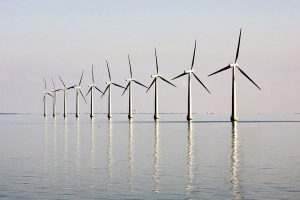RED TAPE and inadequate incentives are posing obstacles to the growth of the Philippine renewable energy (RE) industry, the World Wide Fund for Nature (WWF) said in a report.
“Lengthy permitting process has been identified as one of the biggest obstacles to the deployment of renewable energy. Just at the initial stage, the requirement for renewable energy developers to secure numerous permits and signatures can lengthen the permitting process,” according to the report, prepared by the WWF’s Philippine unit.
It said delayed permitting comes even with the creation of the Energy Virtual One-Stop Shop (EVOSS), which the WWF described as a “renewable energy transition enabler.”
EVOSS is the Department of Energy’s scheme for expediting the processing of applications for energy projects.
WWF Philippines said the report was prepared after two formal roundtable discussions involving representatives from the government, civil society, and organizations in the public and private sectors.
It cited the lack of incentives for RE developers and the need for more guidance to potential RE investors who are on the lookout for incentives for various new technologies.
“This report can serve as a guide for stakeholders on the policies promoting renewable energy,” Geraldine Anne Velasco, who manages the WWF Philippines MoRE project, said in a statement.
MoRE stands for Monitoring Renewable Energy implementation in the Philippines.
“There is an urgent need for all stakeholders in the energy sector to come together to address obstacles to the growth of the renewable energy industry so that we can accelerate the transition away from fossil fuels,” said Angela Consuelo Ibay, who heads the Climate Change and Energy Programme of the WWF Philippines. — Ashley Erika O. Jose

